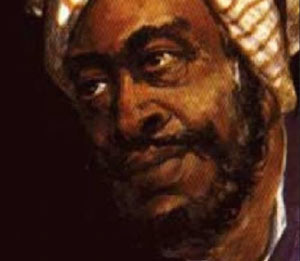It is a series of articles written by PROFESSOR IRFAN SHAHID to project the contribution of Muslim Scientists and Scholars. This series aims to introduce the contributions of Muslim scientists to parents and school-going children. However, the column will also be equally useful to the general reader who has a negative image about Islam and Muslims. Prof. Shahid is a Shari’ah scholar and prolific writer on Islam and Muslims.
How many of us know the contribution of Islam to the field of science and technology? I think very few of us while Islam has to its credit a significant contribution to science and technology during the Islamic era from the sixth century to the fourteen century. A number of scientists, mathematicians, astronomers, doctors, pharmacologists, geographers, geologists, zoologists, and many other scholars practising other branches of knowledge and learning were born in the various Muslim dynasties in the Middle East, Africa and Europe. These scholars were not just Muslim by name as they had good moral behaviour and religious understanding along with scientific knowledge.
Jahiz was an alumnus of a madrasa (Islamic seminary) yet he made innovative contribution to the field of science and other branches of knowledge. His scientific and educational works were used in various studies of western scholars but not cited and referred to ethically.
Sadly, today a madrasa is considered a place of terrorism by conservative people but Jahiz’s contribution to the field of zoology nullifies the opinions of narrow-minded people, journalists and historians. Madrasa has played a key role in the development of human capital in the field of science and technology. Islam is a divine religion which encourages acquiring knowledge from the cradle to the grave.
Prophet Muhammad (peace and blessings of Allah be to him) said that acquiring knowledge is compulsory for every Muslim man and woman. Moreover, the Qur’ān, the divine book revealed for the guidance of entire mankind, called unlettered people ‘blind’.
Outstanding contributions of Muslims to the field of science and technology were the consequence of the true and complete application of Islam. Though some people try to conceal this truth regarding Muslim contribution yet it is recognised as a landmark in the field research and innovation.
Great Zoologist Al-Jahiz’s contribution has the value of milestone in the field of zoology but it is sad that the present generation of Muslims does not have any significant information about him. Al-Jahiz was born in Basra, in 776 C.E., (nowadays in Iraq). His complete name is Abu Uthman Amer bin Mahboob Al-Jahiz. He belonged to a poor family. Due to economic hardship, he used to sell fish and khubz (bread). His complexion was very dark, by the face he was ugly but his research is magnificently beautiful and pivotal for the academicians and researchers. He died 1200 years ago but still he is alive in the books, research journals and encyclopaedia.
Jahiz’s early life was not economically sound; he was suffering from poverty and hunger. Being in such a stressful situation, he had the real thirst for knowledge. True desire for acquiring knowledge induced him to travel to Baghdad where he met Caliph Mamoon Rasheed. Caliph Mamoon had very friendly behaviour with academicians and researchers. He knew the importance of Ilm (knowledge). Jahiz got emotional affection with this place and stayed with Mamoon Rasheed until his death. He spent a long time in Baghdad. After the death of Mamoon Rasheed, he returned to his native place, Basra where he passed away in 869 C.E. at the age of 96 years. Being an old person suffering from weakness and some diseases, he devoted his entire life to study and research. It was due to real thirst for knowledge and a good understanding of Islam. A famous quotation regarding the incidence of his death recorded in some books is that the aged and weak scholar died in his Kutubkhana (library) when a huge stack of books fell upon him. This statement was made headline of the report of the death of Jahiz.
Generally, he is considered a prolific writer of the Arabic literature. He contributed several books on Arabic prose but his contribution in zoology is more worthwhile than others.
His book Kitabul-Haywan (the Book of Animals) was a compendium on the subject of zoology in his era.
It is a very magnificent work of Jahiz which is highly regarded in the academic world. Jahiz compiled this book in seven volumes and it deals with more than three hundred animals, including large animals, fish, birds, reptiles and insects. In the whole study of animals, he showed the existence of God Almighty and his divine system. Jahiz divides entire creation in two broad sections: Jamin (inorganic) and Namin (organic), subdividing Namin in Haywan (Animal Being) and Nabat (plant).
Later he divided Haywan into four sectors as per their style of movements. He also described the characteristics, behaviour and genealogy of animals. Surprisingly, this book provides very peculiar and worthwhile information on its subject matter. One may get astonished after reading this book, because it contains very rare and real information on the life of animals.
Jahiz was not merely an expert in one branch of knowledge but he had a good understanding of social sciences like political science, sociology, anthropology and the Arabic literature along with real science. Due to his extensive study and wide experience, he wrote a number of books on various subjects. He wrote more than 200 books on various subjects. Some of his famous books are: Kitabul Haywan, Kitabul Baywan wal Tabween, Risala fi Nabil Tabish and Kitbul Bokhla.
[Email: shahid_irfan2002@yahoo.com]


